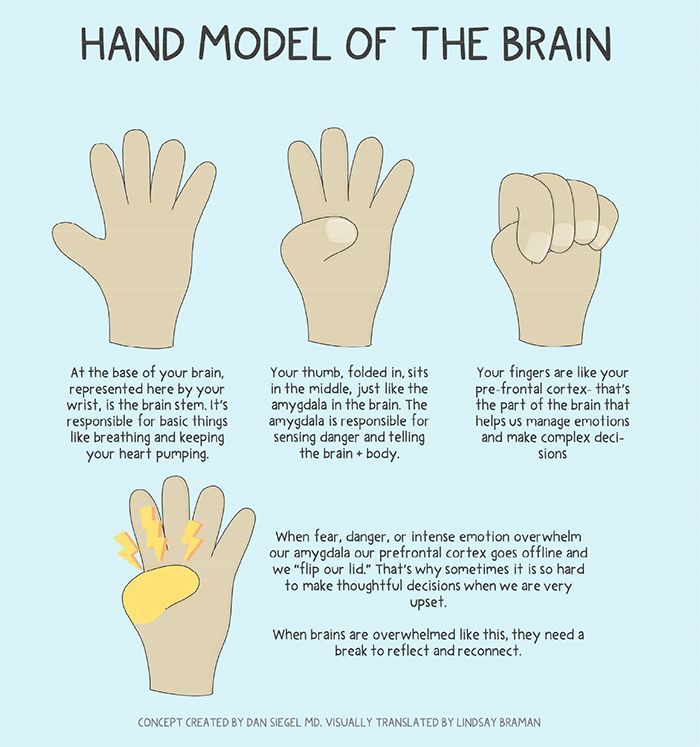The Salt Story: Understanding Emotional Responses in Relationships
When I first encountered Dr. Dan Siegel’s hand model of the brain, coupled with insights from Terry Real and Robin Gobbel, it felt like a lightbulb moment. Their explanations about how our brains scan for safety versus danger profoundly resonated with me. As a therapist, I’ve seen how this understanding transforms relationships, and today, I want to share a personal story that brings this concept to life—what I lovingly call the “Salt Story.”
This story isn’t just about salt; it’s about how our brains interpret everyday interactions in ways that can lead to emotional disconnection. So, let’s unpack this tale of scrambled eggs, neural responses, and relational dynamics.
A Salty Beginning: My Personal History with Salt
Let’s rewind to when I was six years old. My mom, managing her high blood pressure, decided our family would go salt-free. She stopped cooking with salt entirely and didn’t even keep it in the house. From that point on, added salt disappeared from my culinary world. When I moved in with my husband nearly two decades ago, my no-salt habit came with me.
For years, I didn’t cook with salt. In fact, I didn’t even think about it. My taste buds had adjusted, and bland food felt perfectly normal to me. My husband, however, is a salt fan. He’d ask, “Did you put salt in these?” every time I made scrambled eggs. And my answer was always, “No.”
This became a recurring theme in our house. Despite his requests and my good intentions, I’d forget to add salt. And here’s where the salt story takes a deeper turn. His question, innocent as it was, triggered a strong emotional reaction in me—one I couldn’t initially understand.
The Brain’s Hand Model: A Quick Refresher
To make sense of this reaction, let’s revisit Dan Siegel’s hand model of the brain. Imagine your hand as a brain:
- Your brainstem (wrist and palm) keeps you alive by regulating your heart rate and breathing.
- Your subcortical brain (thumb folded into your palm) scans for safety or danger, constantly asking, “Am I okay?”
- Your neocortex (fingers folded over your thumb) is where logic, reasoning, and connection happen.
When your brain is integrated, all these parts work harmoniously. But when the subcortical brain perceives a threat—real or imagined—it overrides the neocortex, leading to defensive reactions. Terry Real calls this “first consciousness” or the “adaptive child.” Robin Goble describes it as your “watchdog” or “possum.“

Why Salt Felt Like an Attack
Every time my husband asked about salt, my brain’s subcortical system sprang into action. Instead of hearing, “Did you add salt?” I heard, “You’re not good enough,” or “You’ve failed again.”
This wasn’t about salt. It was about my brain interpreting his question as an attack. And here’s the kicker: whether or not he intended to attack me didn’t matter. My brain perceived it as one, and my reactions followed suit. Sometimes I’d lash out with, “Can’t you just add your own salt?” Other times, I’d feel guilty and scramble to make amends. (Pun intended.)
The Power of Naming Our Responses
Understanding this reaction started with language. Scientists talk about the subcortical brain scanning for “danger.” But in my relational context, (one that is not, thankfully, domestically abusive) words like “threat” or “attack” felt more fitting.
Once I could name what was happening—”salt attacked”—it became easier to explain it to others. Sharing the salt story with my clients often leads to laughs, but also profound recognition. Many of them have experienced their own versions of “salt attacks,” moments where an innocuous question or comment feels disproportionately threatening.
Bringing Awareness into Relationships
After one session where one of my clients asked me, “Well, is your husband trying to attack you?” And I didn’t know the answer, I reflected on this with my husband. I asked him directly, “When you ask about salt, are you trying to attack me?” His answer? “Sometimes.” We laughed, acknowledging the human tendency to occasionally vent frustrations through small, seemingly trivial comments.
Other times, he’s just genuinely curious or even unaware of how his words might land. Recognizing this variability has been helpful. It’s taught me to pause and consider whether I’m reacting from a defensive place or a connected one.
The Salt Story in Therapy
In my work with couples, the salt story serves as a relatable metaphor. I often ask clients, “Have you ever felt salt-attacked by your partner?” By framing these moments in a less serious, more tangible way, clients feel validated without getting stuck in blame.
Here’s what I emphasize:
- Awareness is key: Recognizing when you’re operating from your protective brain versus your connective brain can transform interactions.
- Intent vs. impact: Your partner’s intent may not be harmful, but the impact still matters. Both perspectives deserve space in the conversation.
- The power of curiosity: Asking, “Are you trying to attack me?” can defuse tension and invite open dialogue.
Beyond Salt: Applying the Lesson Elsewhere
This framework doesn’t just apply to partners. You can apply this understanding to workplace dynamics, friendships, and even parenting. Using the “salt attack” metaphor helps us approach these moments with humor and compassion, reducing conflict and fostering connection.
As Siegel’s hand model shows, the goal is integration. When your protective brain and connective brain work together, you’re better equipped to navigate relational challenges. This doesn’t mean you’ll never feel triggered, but it does mean you’ll have the tools to respond thoughtfully rather than react defensively.
The salt story is a simple yet profound reminder of how our brains and relationships intertwine. Whether it’s about scrambled eggs or something more significant, these moments offer opportunities for growth and connection.
So, the next time you feel salt-attacked, pause. Breathe. And ask yourself: Am I reacting from a protective place, or can I choose connection instead? The answer might surprise you—and just maybe, it’ll bring a little more harmony to your relationships.
If you need some help with this, contact me here! I work with individuals and couples online or in person in Westwood, MA, near the following areas: Norwood, Boston, Dover, Brookline, Wellesley, Newton, Needham, Sharon and Canton.
